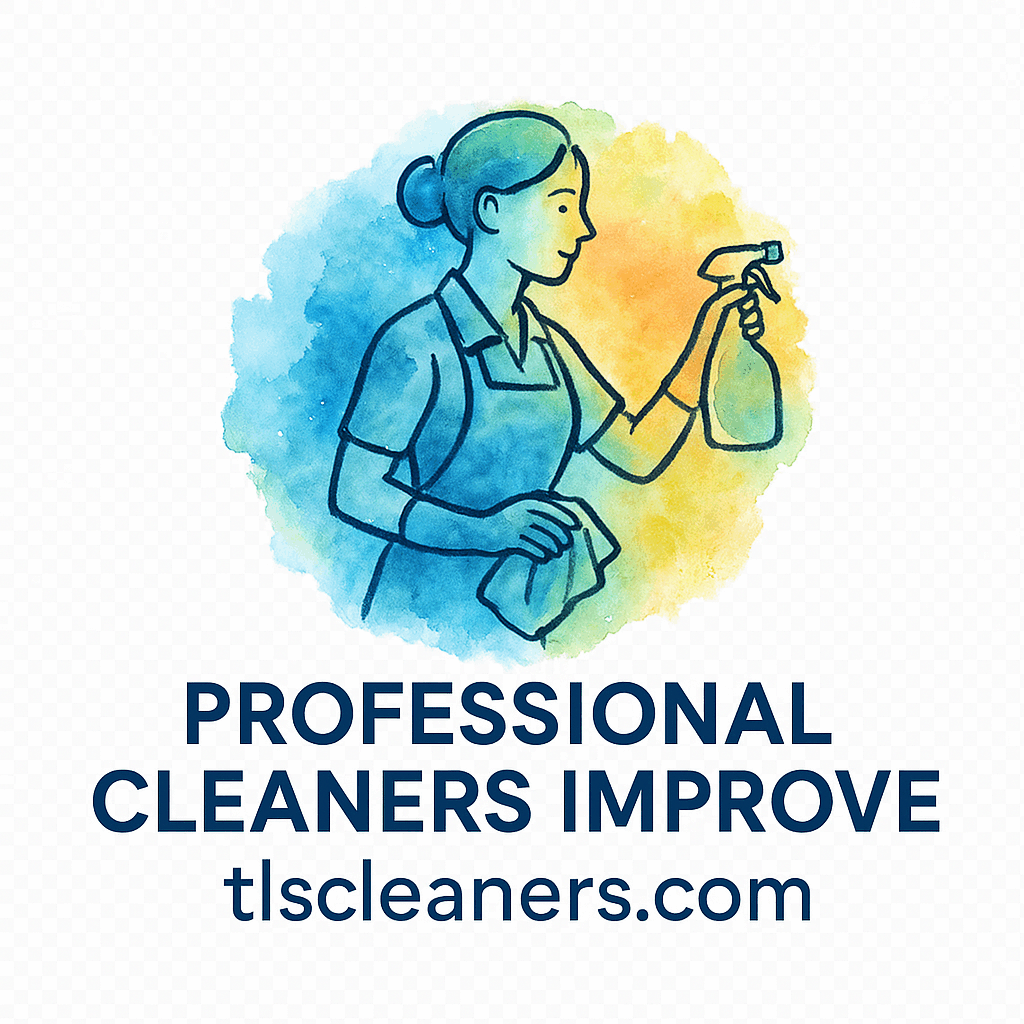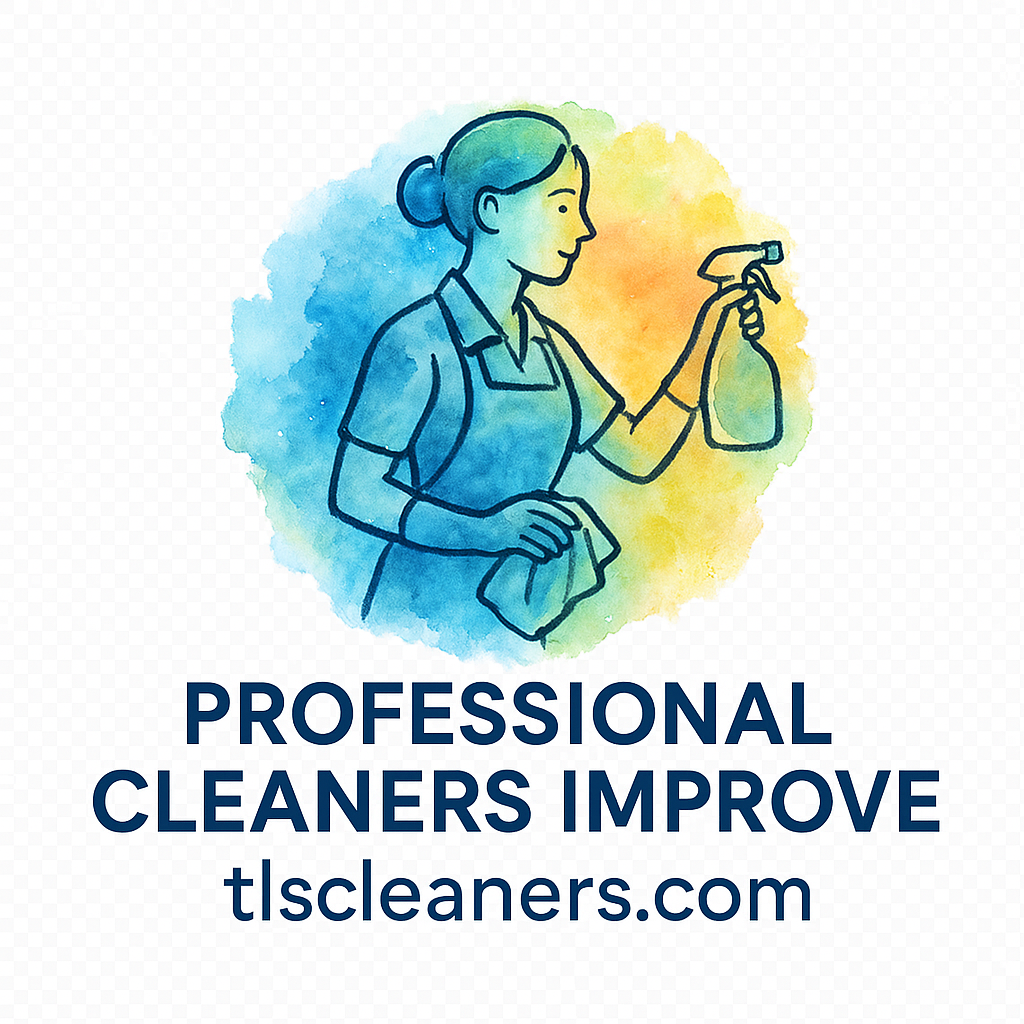Introduction to Green Cleaning
Green cleaning is more than just a trend—it’s a way of taking care of your home while also taking care of your health and the environment. If you’ve been exploring green cleaning, you might notice that professional cleaners who focus on eco-friendly methods avoid certain common household cleaning products and supplies. The reason? Many everyday items release toxins, pollute indoor air, or leave behind residue that affects long-term health.
Whether you’re cleaning your home, your office, or preparing for special events, choosing safe cleaning solutions matters. Many homeowners working with eco-friendly cleaning companies such as those found at TLS Cleaners are discovering the huge benefits of switching from harsh chemicals to natural, safe, and plant-derived options.
What Makes Green Cleaning Different?
Green cleaning focuses on using products that are free from harsh chemicals, artificial dyes, synthetic fragrances, and harmful additives. Instead of bleaching, stripping, and disinfecting aggressively, green cleaning prioritizes:
- Safe ingredients
- Minimal environmental impact
- Healthier indoor air
- Safer surfaces for pets and kids
If you are new to the concept, you can check beginner-friendly DIY cleaning tips at:
👉 https://tlscleaners.com/cleaning-tips-diy
Why Choosing the Right Cleaning Items Matters
Every product you bring into your home affects more than just the cleanliness of your space. It affects air quality, surface safety, and your family’s breathing environment. That’s why green cleaning avoids certain ingredients commonly found in store-bought cleaning products.
Let’s break down 10 everyday household cleaning products professional green cleaners avoid—and what they use instead.
1. Conventional Bleach
Why It’s Avoided
Bleach contains chlorine, which can release toxic fumes. When mixed with other cleaners (especially ammonia), it can form dangerous gases. It’s also hard on surfaces and can cause skin and respiratory issues.
Safe Green Cleaning Alternatives
- White vinegar
- Hydrogen peroxide
- Baking soda
- Tea tree oil
2. Ammonia-Based Glass Cleaners
Why It’s Avoided
Ammonia evaporates quickly, creating harsh fumes that irritate eyes and lungs. Green cleaning avoids these high-vapor chemical cleaners to keep air breathable.
Natural Alternatives
- Vinegar + water in a spray bottle
- Rubbing alcohol + essential oils
3. Chemical Air Fresheners
Why Green Cleaners Avoid Them
Air fresheners release volatile organic compounds (VOCs). These chemicals are known to trigger allergies, headaches, and asthma.
Fresh Scent Alternatives
Natural scent is better! Try:
- Simmering lemon peels & cinnamon
- Diffusing essential oils
- Indoor plants (natural air purifiers)
Check fresh-scent guides here:
👉 https://tlscleaners.com/tag/fresh-scents

4. Antibacterial Soaps & Sprays
The Problem With Antibacterial Claims
Many antibacterial cleaners contain triclosan, a chemical linked to antibiotic resistance and hormonal disruption.
Natural Disinfection Approaches
- Hot water + soap kills germs just as well
- Vinegar + citrus extract spray
- Steam cleaning (no chemicals!)
5. Petroleum-Based Furniture Polish
Why It’s Avoided
These polishes leave residues and fumes that can irritate lungs.
Green Cleaning Alternatives
- Olive oil + lemon juice Furniture Conditioner
- Beeswax wood polish
- Microfiber cloth dusting
6. Synthetic Laundry Detergents
Environmental Concerns
These detergents often contain dyes, brighteners, and artificial fragrances that don’t rinse fully—even into water systems.
Safer Laundry Options
- Plant-based detergents
- Soap nuts
- Baking soda + vinegar rinse
7. Chlorine Toilet Cleaners
Hazards in The Bathroom
Chlorine fumes in small spaces = unhealthy breathing conditions.
Eco-Friendly Replacement Options
- Baking soda scrub
- Castile soap toilet gel
- Oxygen-boost cleaners
8. Oven Cleaners With Harsh Chemicals
Why Ovens Need Special Care
Commercial oven cleaners are extremely corrosive and can burn skin or damage heating elements.
Natural Degreasing Methods
- Baking soda paste + hot water soak
- Vinegar spray + heat cycle
- Lemon steam treatment
9. Single-Use Cleaning Wipes
Sustainability Concerns
They go straight to landfills and are often soaked with chemicals.
Alternatives That Reduce Waste
- Washable microfiber cloths
- Refillable spray bottles
- Compostable cleaning wipes
10. Dry-Cleaning Chemicals Used at Home
Why It’s Avoided
Home “dry cleaning” kits use perchloroethylene, a known carcinogen.
Green Cleaning Alternatives
- Steam freshening
- Sunlight deodorizing
- Professional eco-friendly dry cleaning services
The Benefits of Green Cleaning
Switching to green cleaning offers powerful advantages:
Health Benefits
- Cleaner breathing air
- Reduced allergies
- Safer for kids & pets
Home & Family Advantages
- Longer-lasting surfaces
- No chemical residues
- Naturally fresh scent
Environmental Impact
- Less pollution
- Reduced landfill waste
- Lower water contamination
Learn more about eco-friendly cleaning here:
👉 https://tlscleaners.com/eco-friendly-cleaning
Tips for Transitioning to Green Cleaning at Home
1. Start Simple
Replace one product at a time.
Begin with all-purpose spray + glass cleaner.
2. Replace Step by Step
Choose plant-based, refillable, fragrance-free options.
3. Hire Professionals When Needed
Companies like TLS Cleaners offer residential and commercial green cleaning services including:
- Deep cleaning
- Special event cleaning
- Office cleaning
Conclusion
Green cleaning isn’t just about switching products—it’s about protecting your home, your family, and the planet. By avoiding harsh chemicals like bleach, ammonia, synthetic fragrances, and petroleum-based cleaners, you create a safer, healthier environment. Start small, make gradual changes, and enjoy breathing easier in your home.
FAQs
- Is green cleaning really effective?
Yes—when used correctly, natural cleaners disinfect and clean just as effectively as chemical-based products. - Are homemade cleaners safe for all surfaces?
Most are safe, but always test a small area on wood and stone surfaces first. - Can I use vinegar on everything?
No—avoid using vinegar on granite, marble, and hardwood floors. - Do green cleaning products cost more?
Not necessarily—DIY cleaners often cost less than store-bought products. - Are green cleaners safe for pets?
Yes, most are safer than chemical cleaners. Always check labels. - How do I make my home smell fresh naturally?
Try essential oils, simmer pots, or natural potpourri. - Where can I learn more cleaning tips?
Visit: https://tlscleaners.com/tag/cleaning-tips

